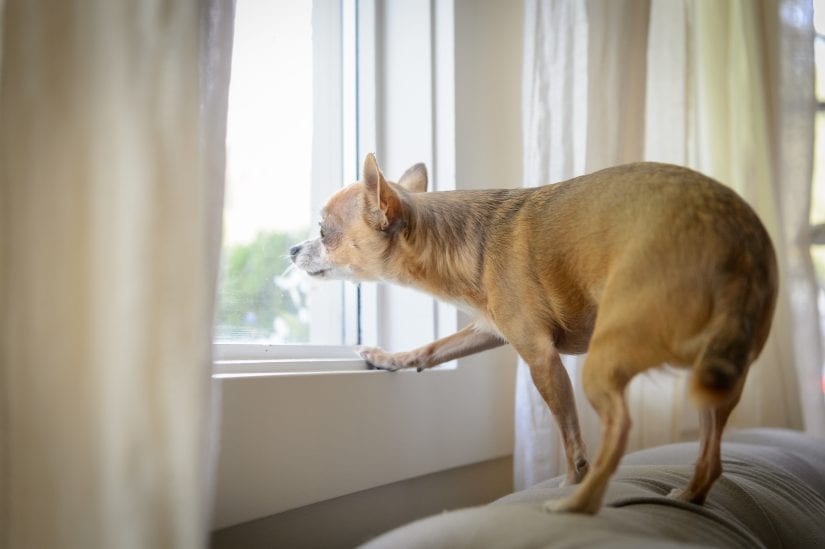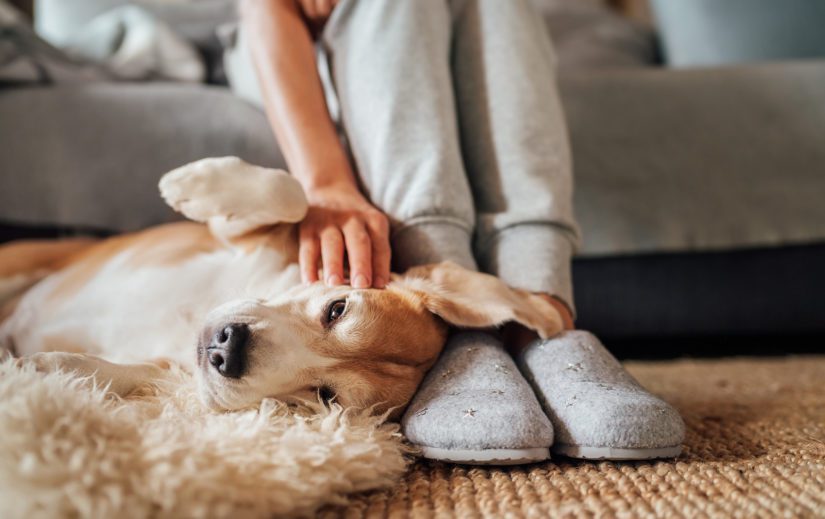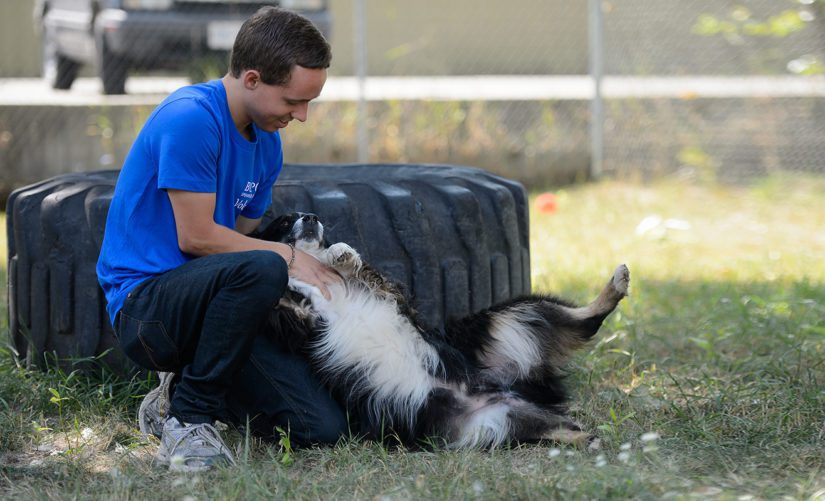It’s been a stressful time for many of us. With so much uncertainty in the world right now, it’s understandable to experience periods of anxiety at this time. Pets can serve as a great source of support for their anxious guardians. Just seeing their wagging tail and cheerful presence can perk up a bad day.
But what about your dog’s bad days? Yes, even your furry friend can have one. In fact, research has shown that your bad day can impact your dog’s stress levels.
A Swedish study published in Nature’s Scientific Reports shows that your anxiety could cause stress in your dog.
While it’s perfectly normal to feel a little blue right now, a little knowledge goes a long way when it comes to alleviating your stress and the well-being of your pooch.
What the study revealed
The research team studied 58 dog owners and their pets, including 33 Shetland sheepdogs and 25 border collies. Concentrations of the stress hormone cortisol were collected over several months from their hair and fur (respectively). Cortisol is a measure of physiological stress, which can be raised during mental distress, and can also slightly increase from illness and exercise.
The results? A significant correlation between human and dog cortisol levels that spanned the length of a year.
Over the summer, the cortisol levels of 57 dogs matched those of their owners. The same was true for 55 dogs in the winter. Which means the stress levels of the dogs increased and decreased according to the levels of their guardians.
It was noted that this correlation was influenced by the guardian’s personality and not by the dog’s personality or activity levels. The owners with higher stress levels had dogs with higher stress levels too with female dogs being more affected than their male counterparts.
While the study did not identify any causes of elevated stress in the dog owners, it does indicate that regardless of the cause of the stress, our reaction to it affects our dogs.

How your stress affects your dog
The study above didn’t specify how stress affects your dog. However, it’s important to note that signs of anxiety are specific to the individual dog, and can include panting, excessive yawning, restlessness, inability to pay attention, repetitive behaviours, shaking, loss of appetite, or extreme attention-seeking behaviours. In some dogs, anxiety is manifested by social withdrawal, avoidance behaviours, or a profound lack of behaviour (‘shut-down’ behaviour).
Dr. Karen van Haaften, the BC SPCA’s senior manager of behaviour and welfare, notes that dogs can suffer from different kinds of anxiety – triggered by certain noises or specific situations such as car rides or nail trims. Dogs can also suffer from more generalized anxiety in which there are multiple triggers for anxiety. “Some dogs are more prone to anxiety due to genetic factors or lack of socialization during their sensitive socialization period of six to 16 weeks,” she says.
Alleviate your stress with your furry friend
During a pandemic it’s completely normal to feel overwhelmed. We’re limited with what we can do and who we can spend time with. Which is why your pet can be so critical for companionship.
Here are some ways to help reduce and relieve both your and your dog’s anxiety.
Indulge in a cuddle session
The simple act of petting our animals has a calming effect on us, says Ashley Phillips, a Kelowna-based psychotherapist and clinical counselor. “Doing so releases serotonin, oxytocin, and prolixin in our bodies hormones that help us regulate our nervous system and helps us calm down and soothe.”
In addition to relieving stress and anxiety, these hormones are also associated with relaxation, warm feelings, and connection, which creates bonding between us and our pets. So, go ahead and indulge in a daily cuddle session with your pet – that is if you have their permission.

Connect to the present moment with your pet
“Staying present is so important for our well-being especially with everything that is going on these days,” says Phillips. “When we’re lost in our thoughts our pets can give us a healthy distraction from what’s happening around us. The nurturing and connection from our pets can help us feel safe and comfortable within our own bodies when our nervous system is creating fear and anxiety.”
In fact, a common calming technique that Phillips recommends to her clients is having them watch their animals breathe. “What this does, depending on the animal, is you can actually co-regulate your breathing with your pet. With a bigger animal, like a dog, you can actually see them breathe in and out and we can co-regulate our breathing and that helps us to soothe our nervous system.”
Tap into your sense of purpose with the help of your furry friend
According to Phillips when we’re unsure of our purpose it has an impact on our mental health. As such we might not even be doing things that are important to us, which inevitably causes us suffering and frustration.
“Since our purpose is tied into our value system, when we know what are our values in then we can direct where we put our energy and attention,” says Phillips. “When we know what our values are, then our animals can help us connect with that.”
For example, if one of your values is keeping fit, then a pet can help you get outside so they can have their morning walk and you can stay accountable to your goal. If community is important to you, you might try to strike up a conversation with a fellow dog guardian in your neighbourhood. Or if you’re someone who likes to support others, you might get your dog certified as a therapy dog and offer to help out your community. (All within safety measures, of course.)
Play with your pet
One of the easiest ways to shake off a bad day (or year) is by engaging in play. “There is a lot of therapeutic benefits with laughter and playing as it will help change the endorphins in our brains and our body’s response with it,” says Phillips.
So, take the time to be silly and play with your pet on a daily basis. Throw a frisbee in the backyard or play fetch at a local dog park with your pooch. If you have a cat, take a few minutes to play with a feather wand or other preferred toy.
“Pets want to play and have fun and be silly – that’s what they love to do,” says Phillips. “They help us access that fun and playful part of us.” Which is something we all need a little more of these days.

More like this
How to prevent separation anxiety in dogs
